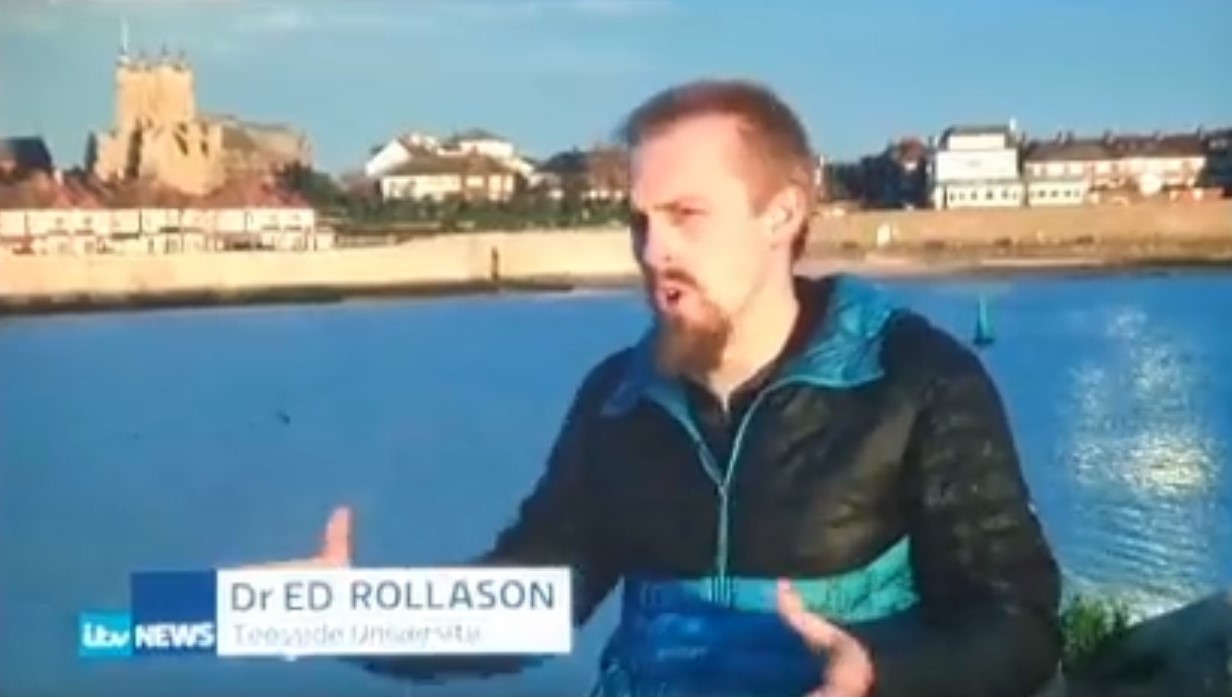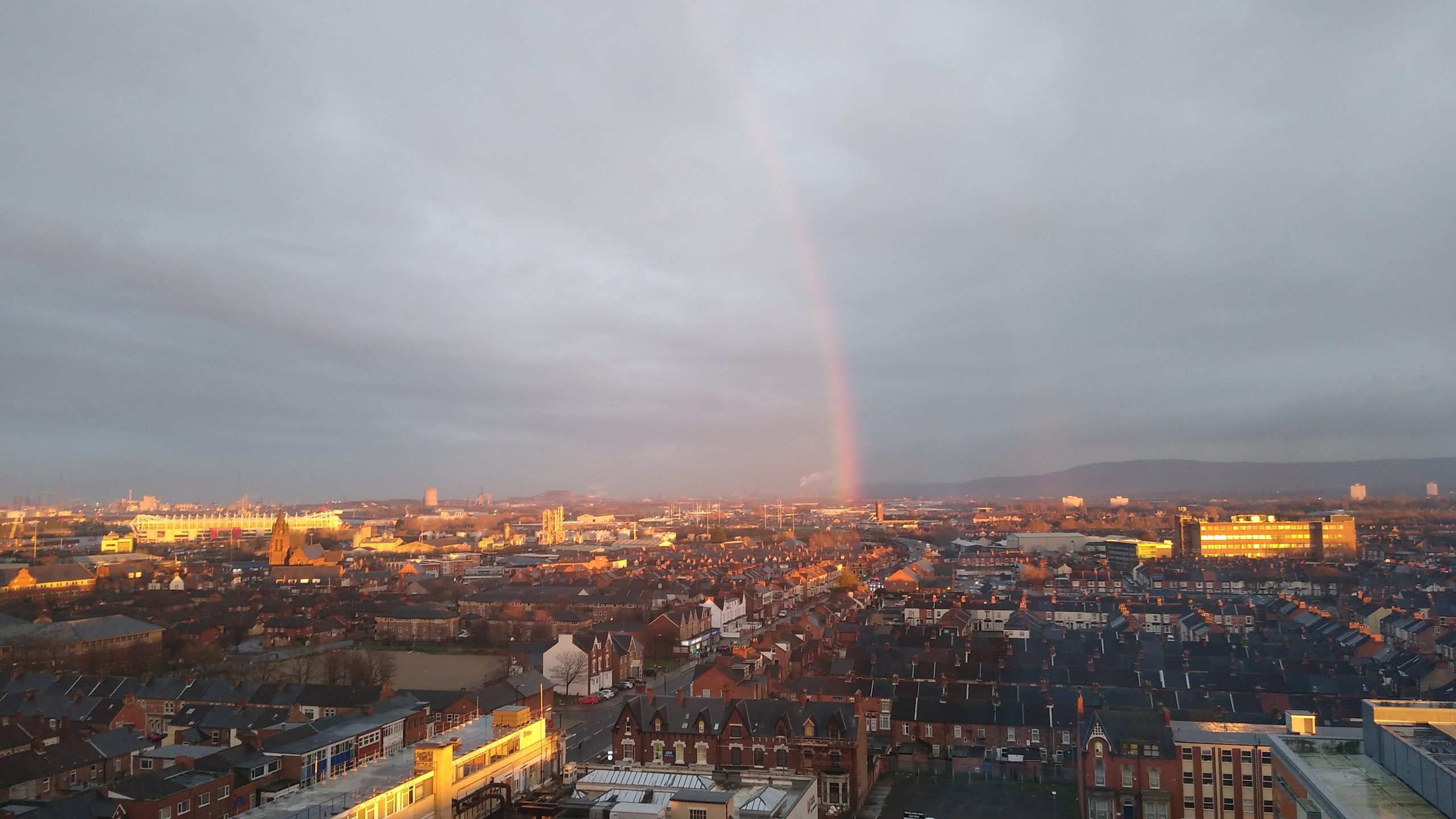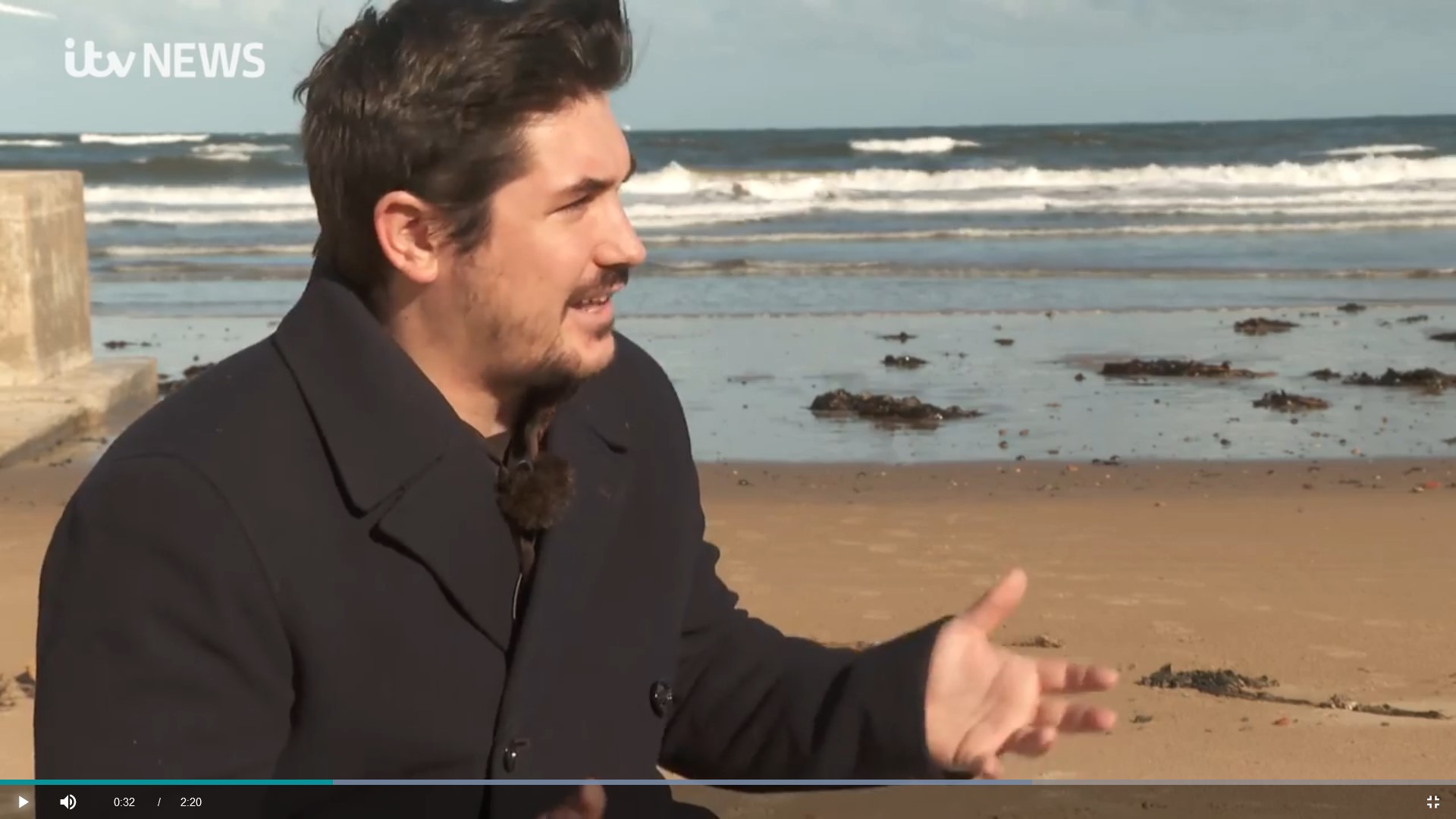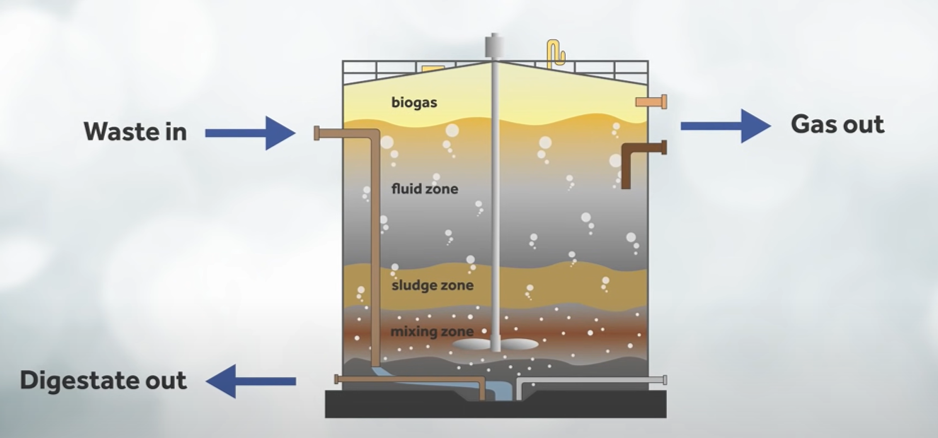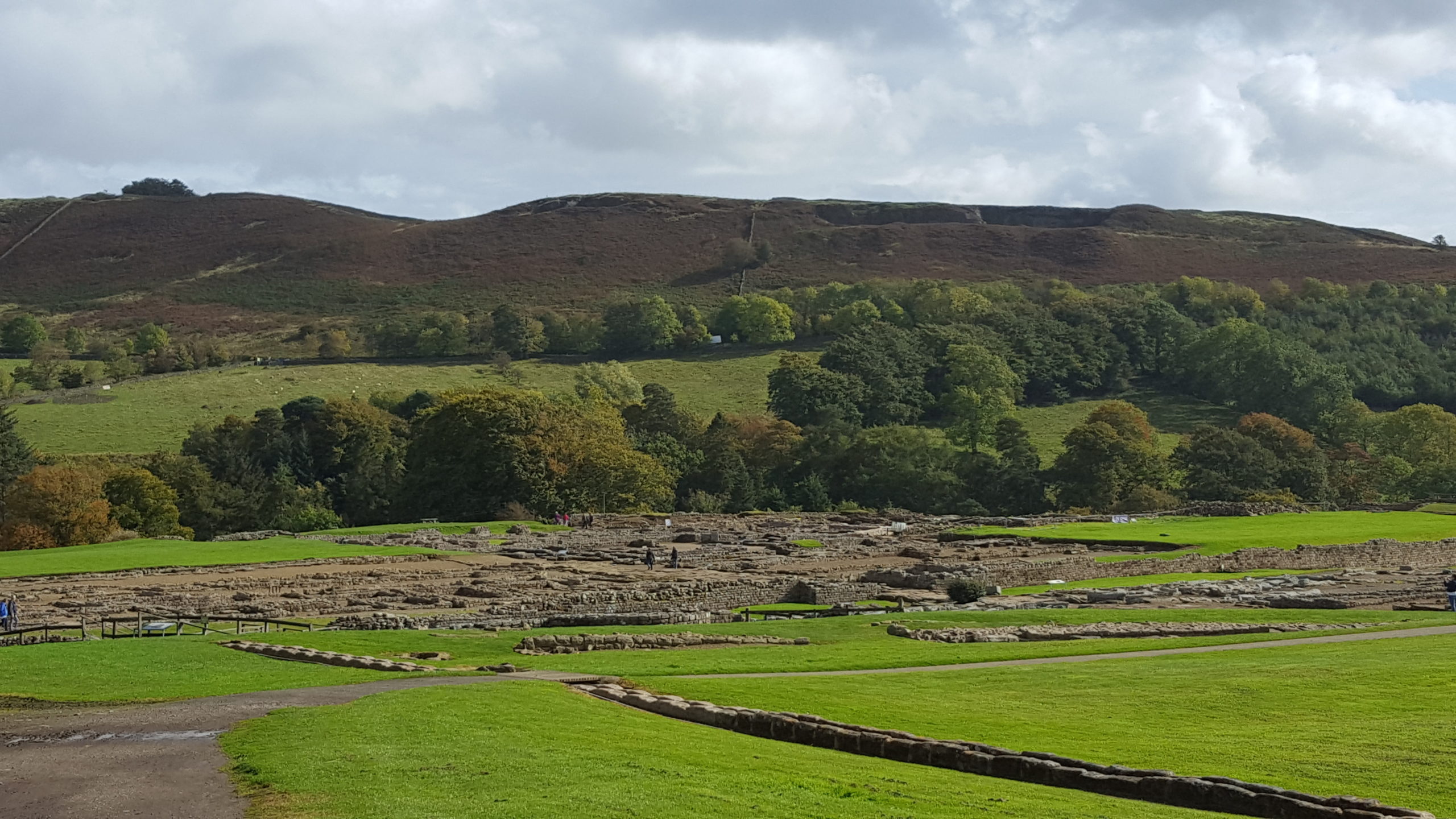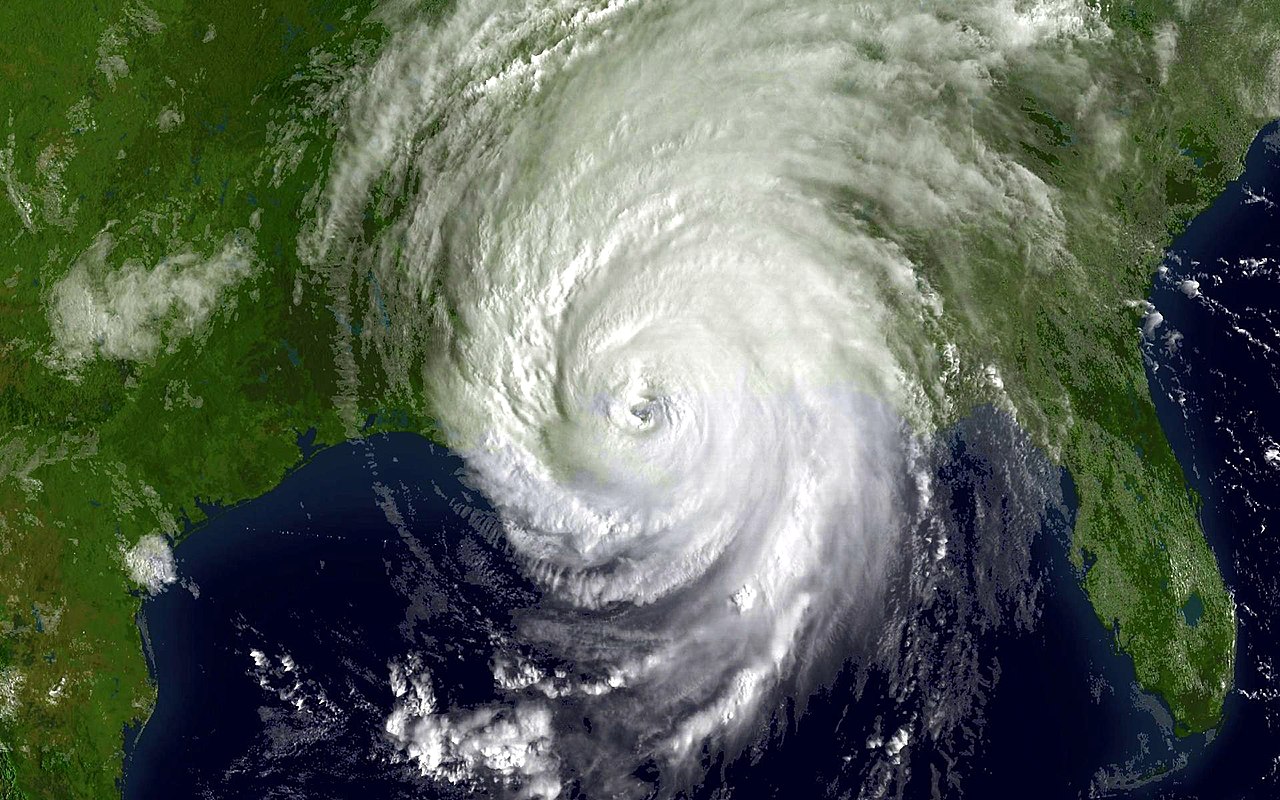Dr Ed Rollason shared his expertise about coastal flood risk on a ITV News report:
Category: Earth Science
Tees Valley Youth Climate Summit 2021
Climate researchers, members of the Earth Ecology and Environment research collective led the organisation of the first Tees Valley Youth Climate Summit with colleagues from across the university.
The summit was a success widely relayed in the local press, for example in the Northern Echo.
There are already talks of a 2022 summit…
Dr Jamie Bojko and PhD Candidate Amy Burgess in the news
Dr Jamie Bojko and Amy Burgess shared their expertise in an interview with ITV, following the crustacean mass kill observed on Teesside coastline. The incident is being investigated by the Environmental Agency and CEFAS. You can catch up with the interviews following this link to ITV.com: Why are hundreds of crabs washing up dead on Teesside’s beaches?
The news and the interview was widely relayed in the press.
Promotions
We are proud to announce that four members of the Earth, Ecology and Environment research collective have been promoted to senior lecturer:
Dr Lisa Baldini, Senior Lecturer in Environmental Science (Research & Innovation)
Dr Danny McNally, Senior Lecturer in Human Geography (Research and Innovation)
Dr Jamie Bojko, Senior Lecturer in Disease Ecology (Research and Innovation)
Dr Ambroise Baker, Senior Lecturer in Ecology (Research and Innovation)
We can expect many more promotion to come in the coming years following the University’s research path, of the academic progression framework.
Climate Change and Maize Farming in Belize – Reflections on my PhD field work
PhD Raquel Chun shares reflection from her field work:
“Now in 2021, data collection is starting up again but with extra careful planning and adhering to strict protocols to ensure both myself and my farmers are safe. I have been out in 5 farms already doing soil collecting and conducting 4 interviews. My farmers are happy to see me again but they are also very concerned about Covid-19. All of our lives are different from the last time we spoke in 2019.
Reminiscence
As I progress- albeit a bit slowly – on data analysis, the memories of my adventures during fieldwork come back with surprising clarity. In 2019, I trudged barefoot across a river, tripped over farm debri, drove – slipping and sliding in my 2-wheel drive, sturdy little SUV- over muddy roads and partook in simple, local meals over a period of 6 months in southern Belize.
First of all, my project under the Global Challenges Research Fund Centre for Doctoral Training at Durham University and co-supervised by Dr Lisa Baldini at Teesside University is to research the impact of climate change in the decision making of indigenous Maya farmers in three villages in southern Belize. This involves monitoring changes in weather and climate utilizing weather station and historical data, conducting ethnographic interviews with Maya farmers as well as soil monitoring and crop yield measurements. My research seeks to offset the lack of information on the impact of climate change on smallholder farmers by studying the impact of changing weather patterns on the decision making of Belizean Maya farmers in the Toledo District over the long and short term.
My first year of data collection in 2019 started with a metaphorical bang. Initially, I was arranging meetings with the local leaders of three Maya communities as per cultural protocol in order to introduce the project and find farmers who were willing to participate. The community leaders of the first community I approached were very eager for their farmers to participate in my study so I was off like a shot, arranging meetings with interested farmers and planning farm visits to start soil sampling with the knowledge I had gathered since I had begun my studies in February 2019. The data collection was a challenging yet fulfilling journey that yielded new friendships and knowledge.
As I started this journey, I was unaware of how much it would truly impact my life and help me learn more about the lives of smallholder Maya farmers. Although I am an indigenous Maya woman, I grew up in a more urban setting, 3 miles from the capital city of Belmopan. Therefore, as I went along my fieldwork visits, I learnt about local beliefs surrounding farming as well as the struggles these families go through as they make their living. It made me gain more perspective on the issue of climate change and how it affects the livelihoods of the most vulnerable people. I have been welcomed with open arms and a lot of curiosity due to the fact that I am a Mopan Maya female studying for a PhD in the field of agriculture and climate change which is mostly foreign to them as well. This dynamic has made for some interesting conversations with farmers’ and their families.
At the end of 2019, I had two data collection rounds doing soil sampling of farms, conducting interviews with farmers and taking crop yield measurements after harvest.
COVID19 Pandemic – impact on my work
Well we all know what happened in 2020 with a global pandemic almost bringing the world to a standstill. This, of course, included my fieldwork which was both a blessing and a curse. In April of 2020, I became the mom of a bright-eyed, curious baby boy. Motherhood itself has been a whole other journey. Due to the COVID 19 pandemic, there was no soil sampling. There was no conversations with farmers especially with Covid19 cases rising steadily in the country. The entire world had changed and we needed to figure out how to live in it. Luckily, I was able to return to my country before the pandemic caused lockdowns and before my baby was born. ”
How can microbes can turn rubbish into riches?
Our own Dr Caroline Orr took part to the Royal Society’s Summer of Science 2021.
An interactive online game was also created:
https://royalsociety.org/summer-science/summer-science-2021/urban-landscape/summer-microbes
Research grant to study geochemical and microbial conditions underpinning turf preservation at the Roman site of Vindolanda, UK
Drs G Taylor and C Orr won a new grant to carry out the work as follows.
The Roman Fort site at Vindolanda is known for the exceptional preservation of its finds, among them wooden writing tablets and leather shoes. A recent study into Roman construction practices at the site demonstrated that this preservation extends to the turf ramparts, with plant fibres and seed heads still visible and microbes seemingly surviving within the soils. While that earlier project focused on turf in building, this new one will evaluate what this same material can reveal about the ancient environment. As a pilot study, it will assess the geochemical and microbial conditions, which underpin this preservation, and evaluate the turf blocks’ potential as environmental archives to reconstruct the landscape around the fort through time. Results will inform four smaller-scale follow-on analytical packages and three large-scale interdisciplinary funding applications to investigate the economic and ecological impacts of turf sourcing and turf’s potential as a zero-carbon building material for the future
Sustainable Drainage Research at Climate Exp0
Dr Ed Rollason, along with colleagues at Durham University and University College Dublin are collaborating on a project exploring how we conceptualise Sustainable Drainage Systems (SuDS) as mechanisms for enhancing high density urban environments. They are currently exhibiting a poster on the work at Climate Exp0, a free conference being run as a prequel to the COP26 climate summit to be held later in the year.
Sustainable drainage systems are key components of urban drainage infrastructure for new build houses. However, retrofit takeup of SuDS is low and generally unimaginative, and projects often do not meet their aspirations for delivering multiple benefits. We argue that identifying the effectiveness and potential for retrofitting SuDS requires understanding the nexus between the nature of the problem being addressed, the place in which the intervention is being implemented, and the level of investment which is being made available. This paper will propose a new conceptual model integrating these factors which will allow SuDS designers and promoters to better understand where and how to implement SuDS to achieve the greatest chances of success and the greatest co-benefits.
Next fortnightly meetings
The dates for our next Earth, Ecology and Environment Research Collective fortnightly meeting can be found below.
Agendas/program to follow. let us know if you would like to come and speak to us or if you would like to join!
Scheduled Earth, Ecology and Environment fortnightly meetings: Wednesdays 1-2pm
- Jan 6th
- Jan 20th
- Feb 3rd
- Feb 17th
- March 3rd
- March 17th
- March 31st
- April 14th
- April 28th
- May 12th
- May 26th
- June 9th
- June 23rd
Lisa Baldini providing expert climate opinion
Teesside Lecturer in Environmental Science, Dr Lisa Baldini was recently asked to comment on a new study in Nature highlighting the increased risk of landfalling North Atlantic hurricanes tracking further inland under climate change. Here is the article for more details: https://insideclimatenews.org/news/13112020/hurricanes-climate-change-extreme-weather-climate-science.


